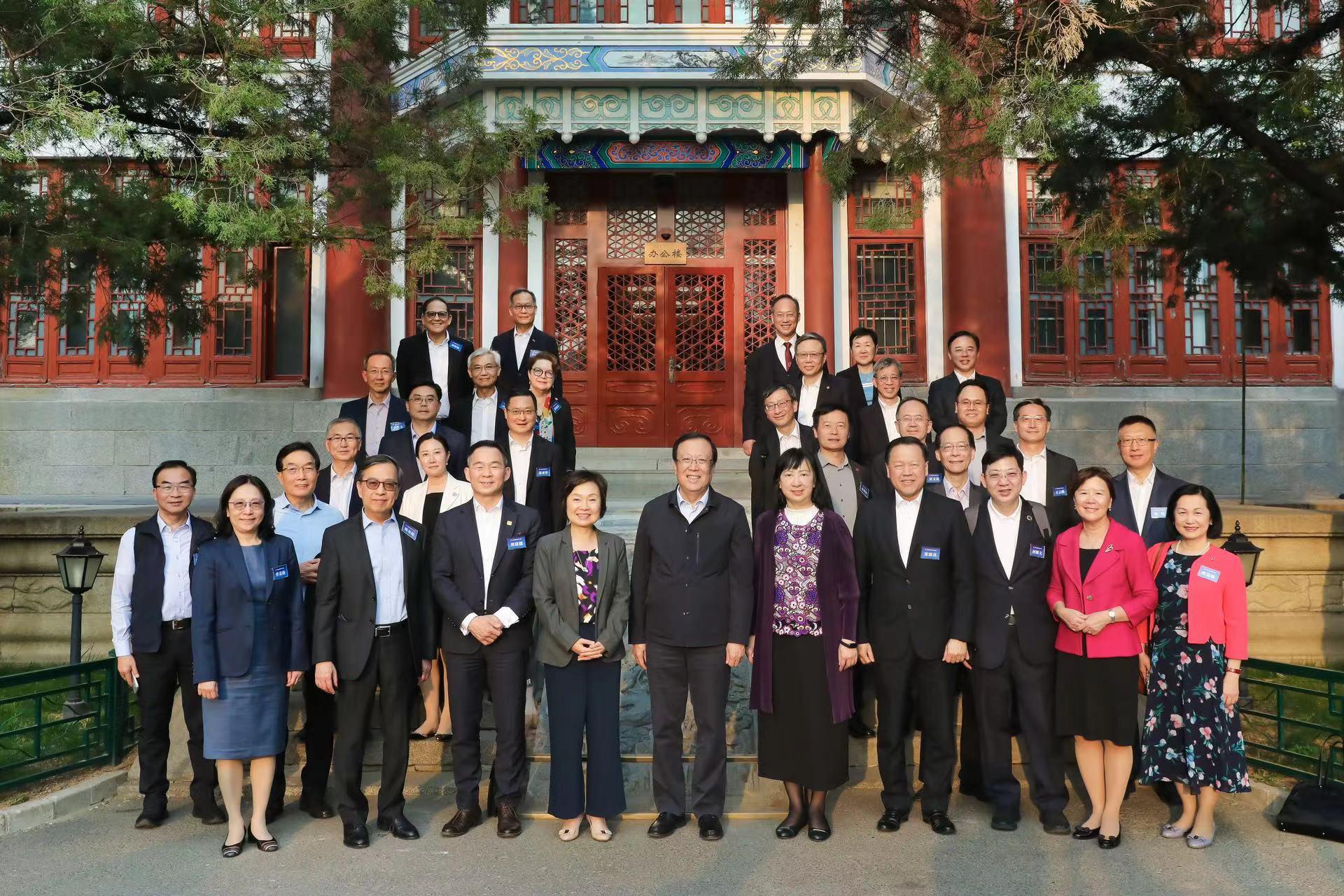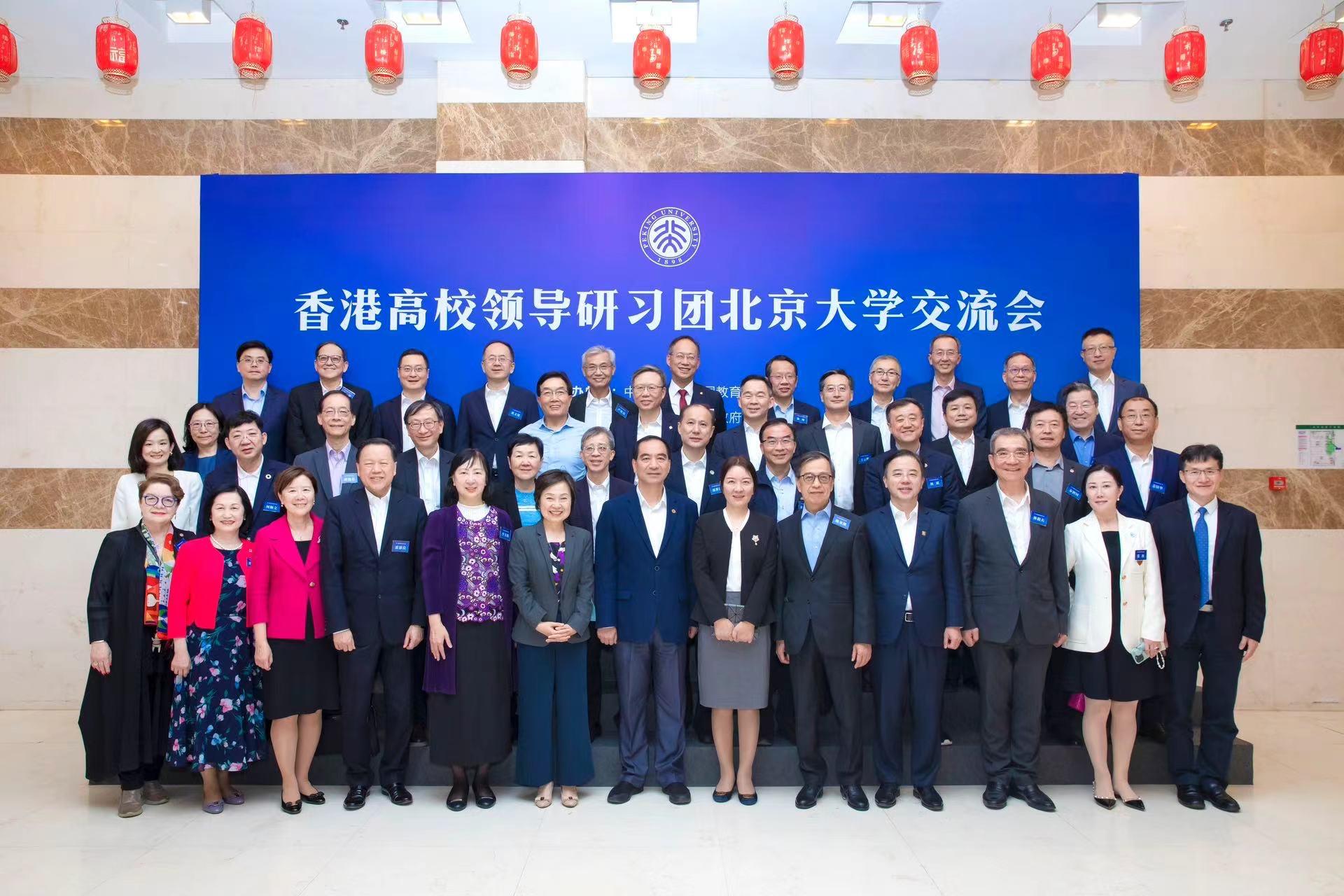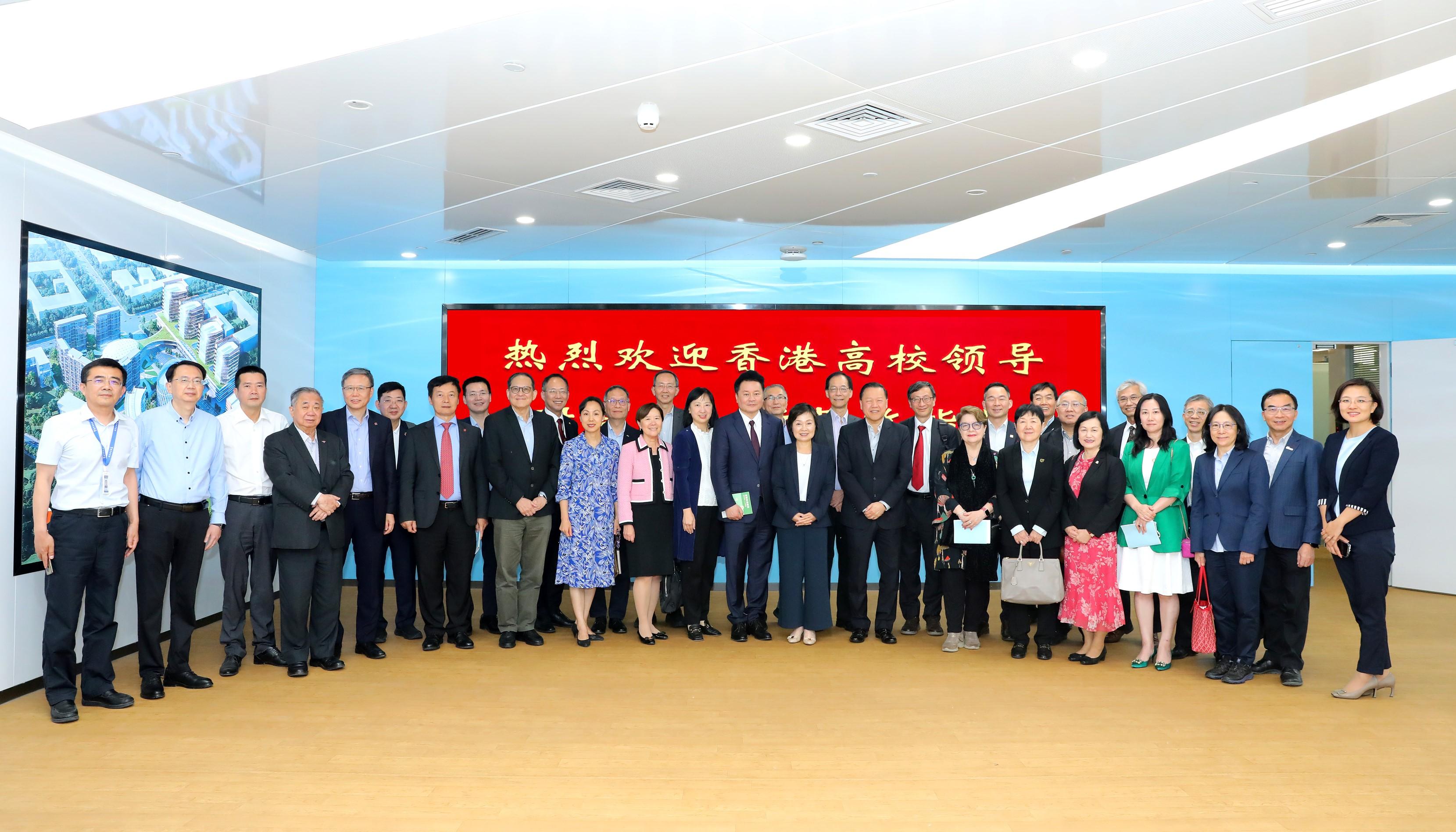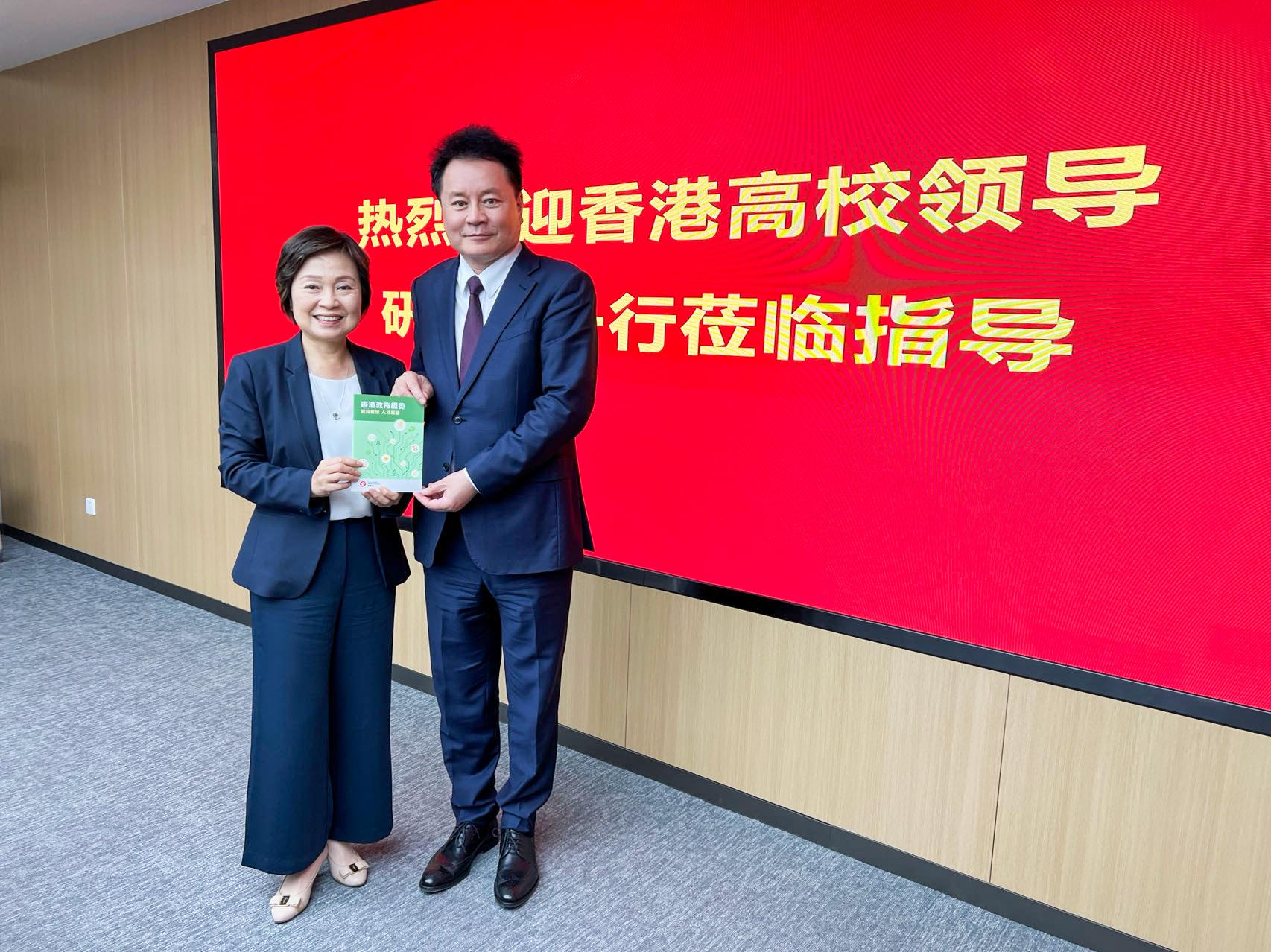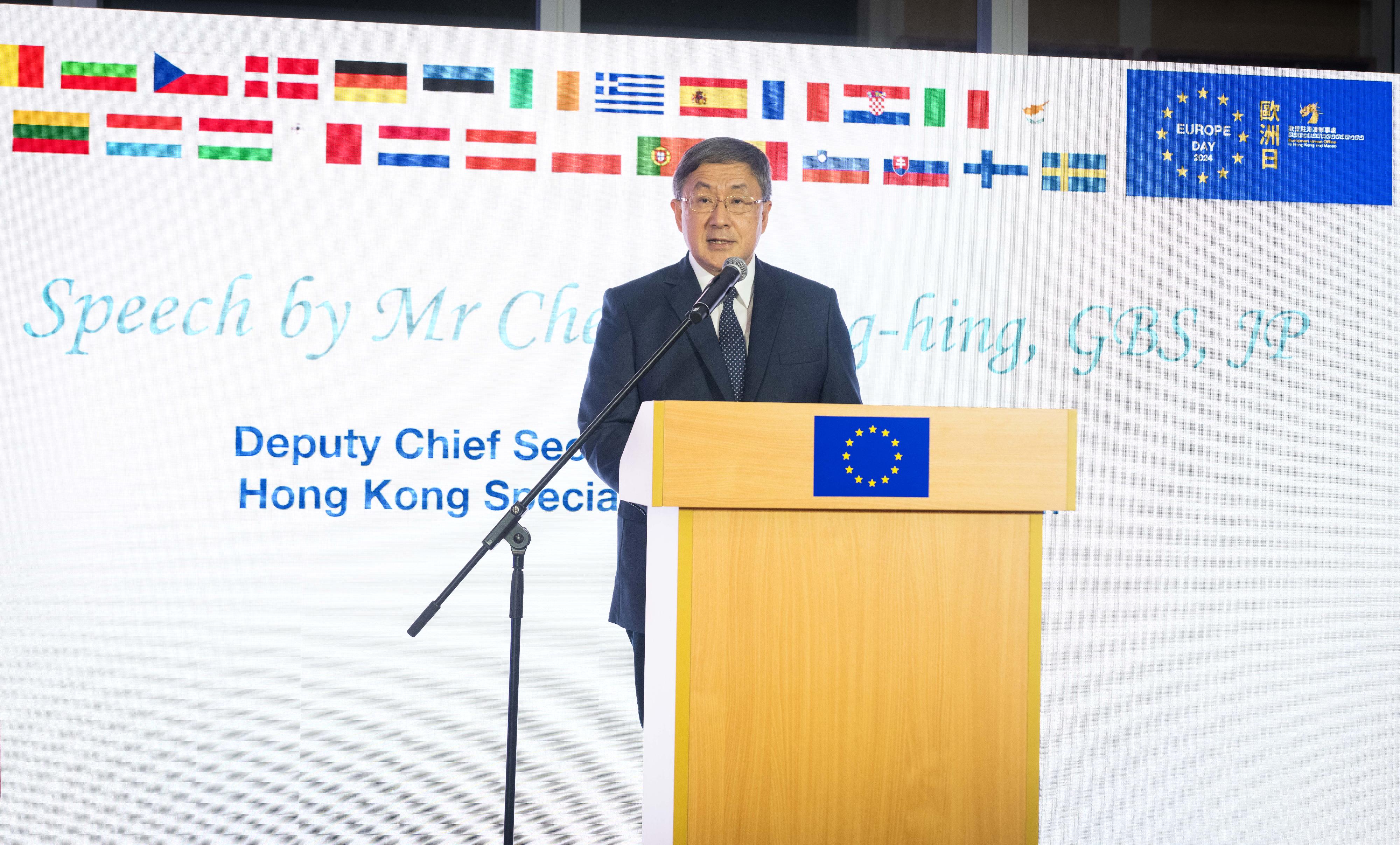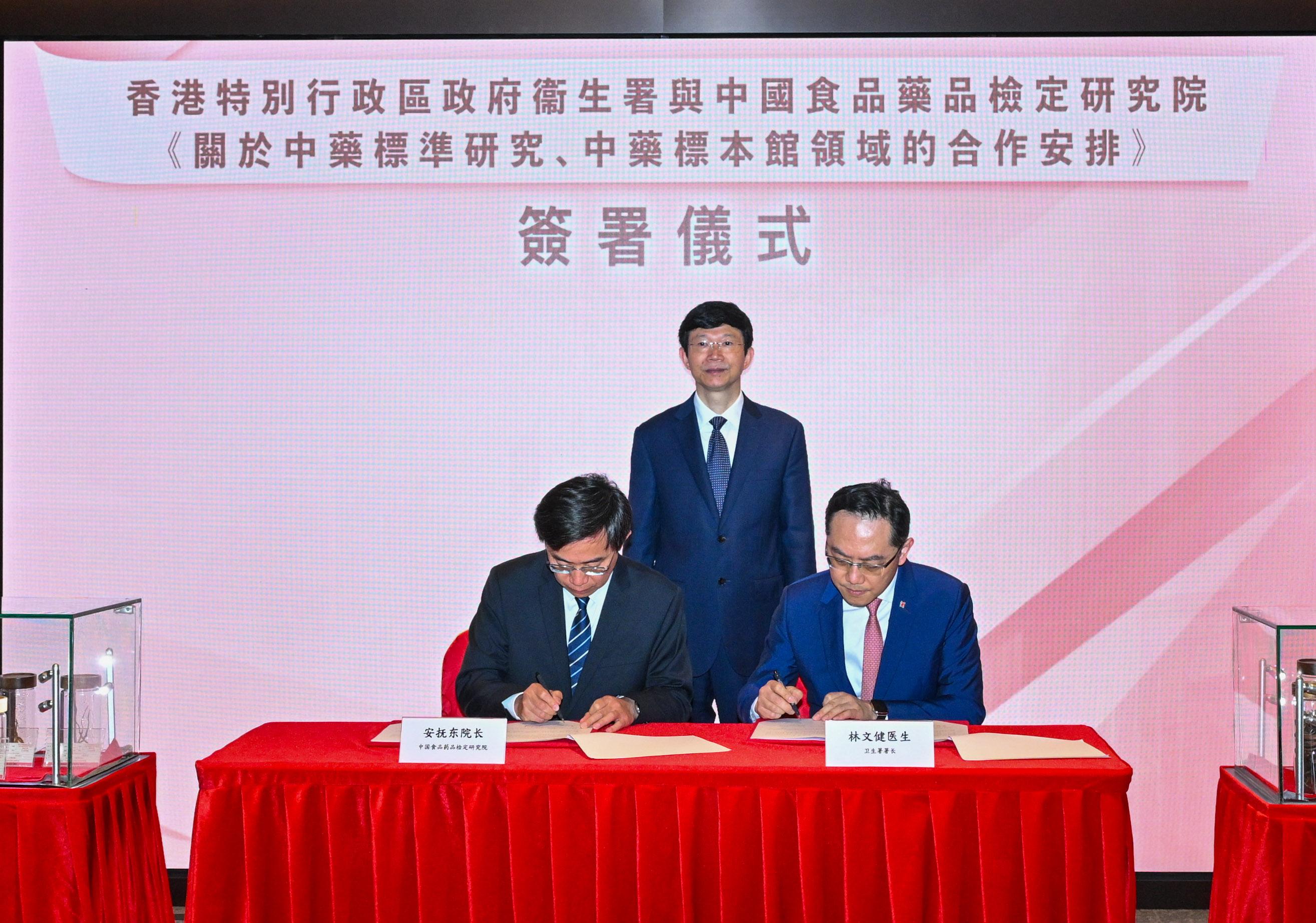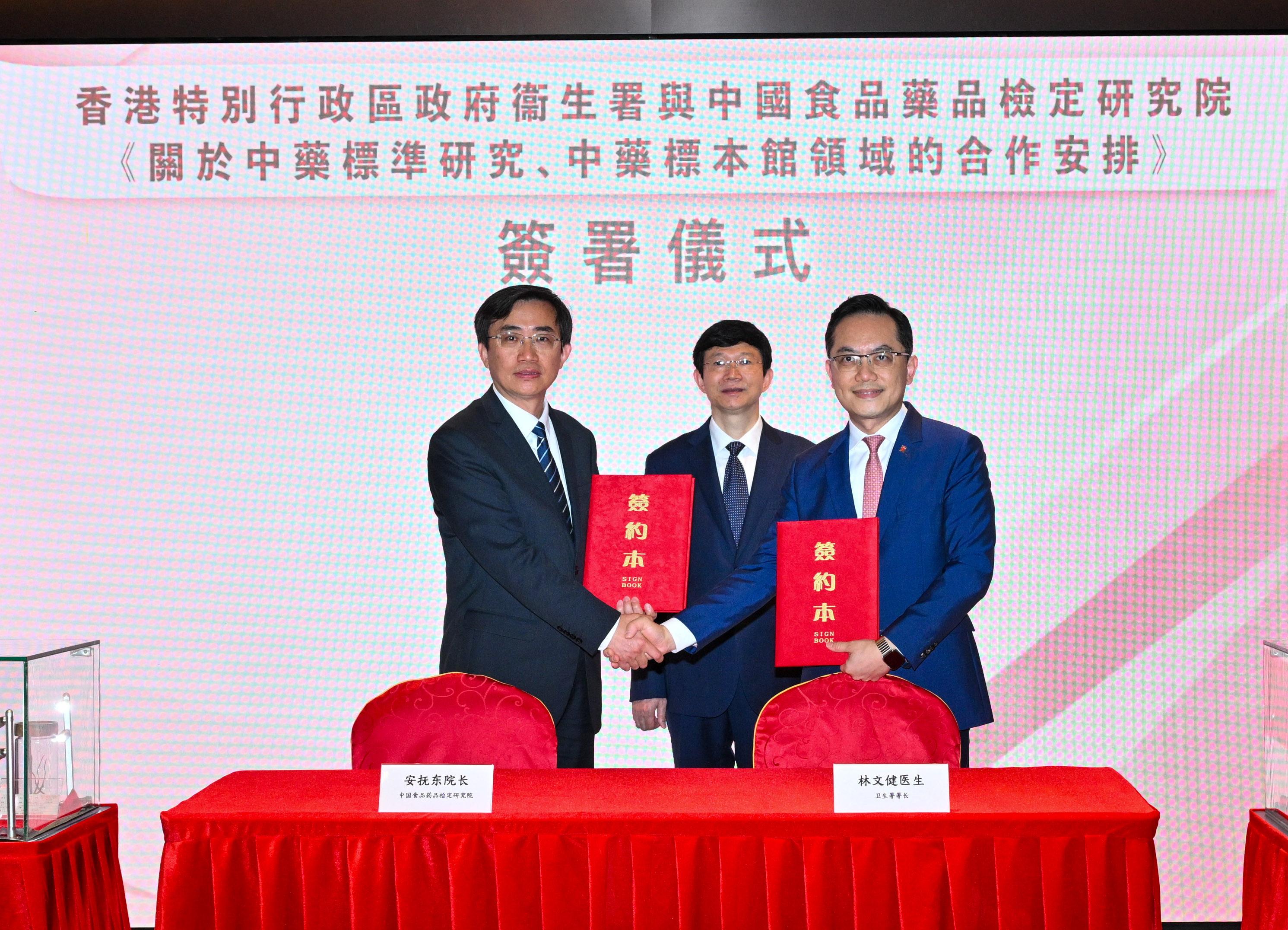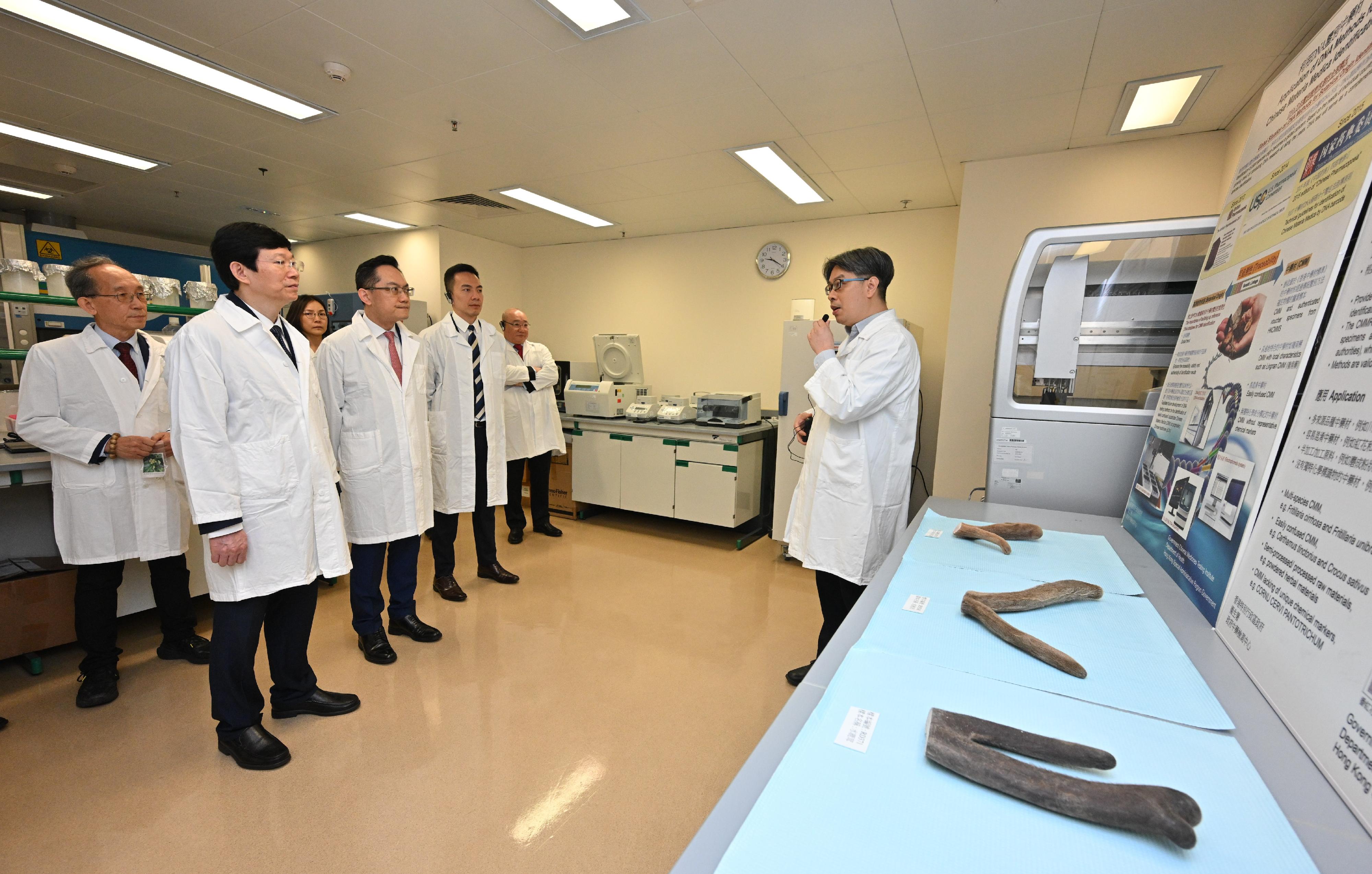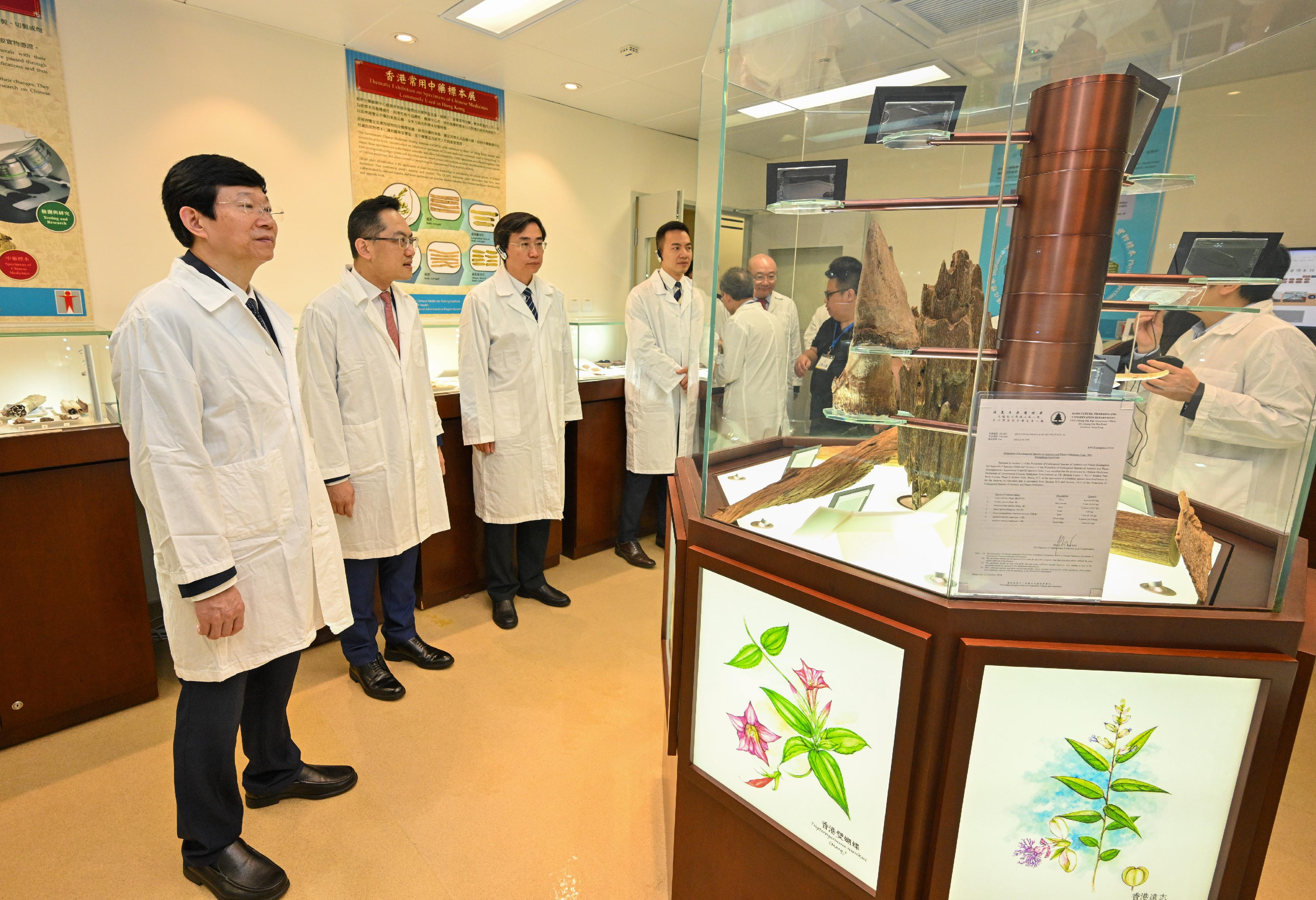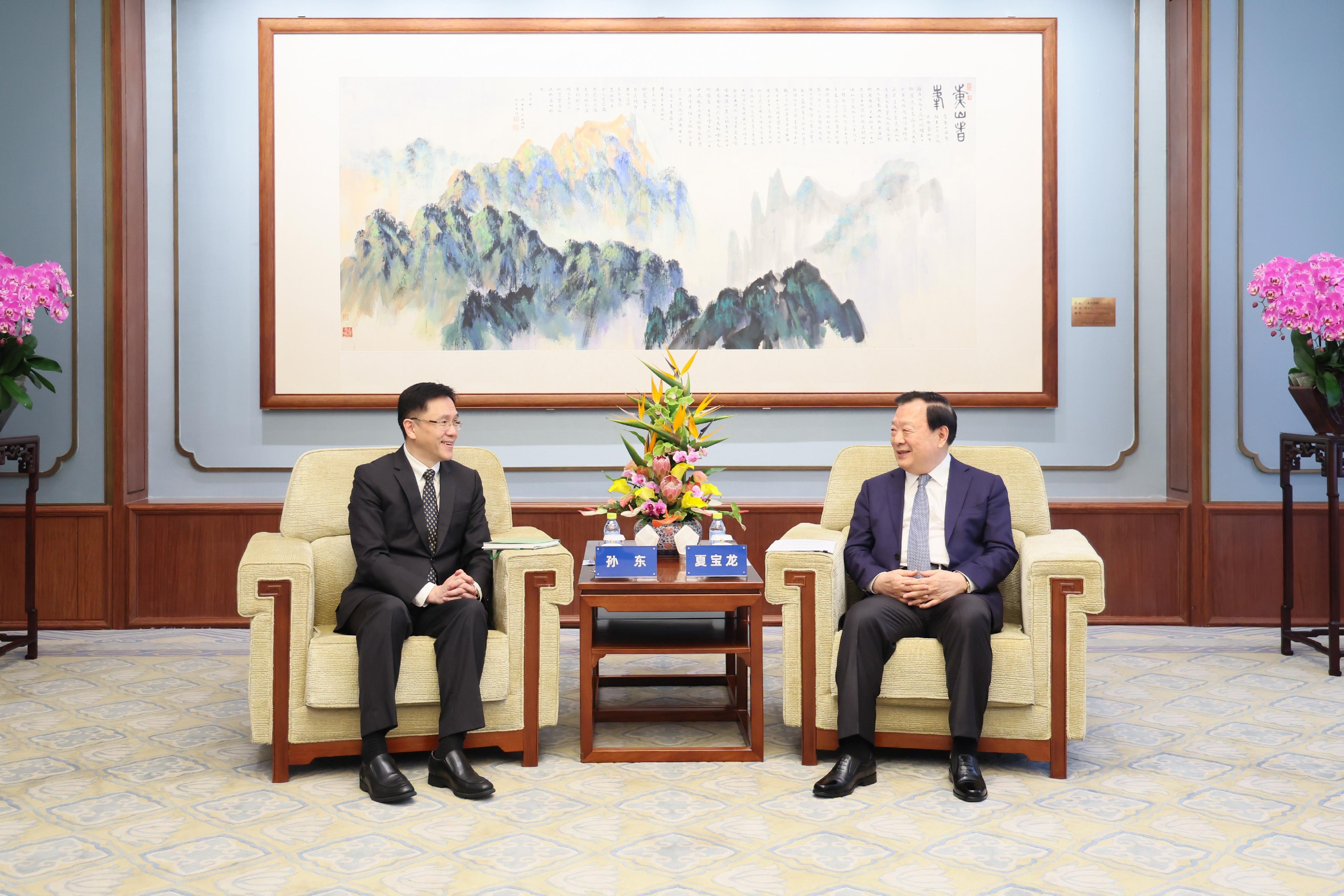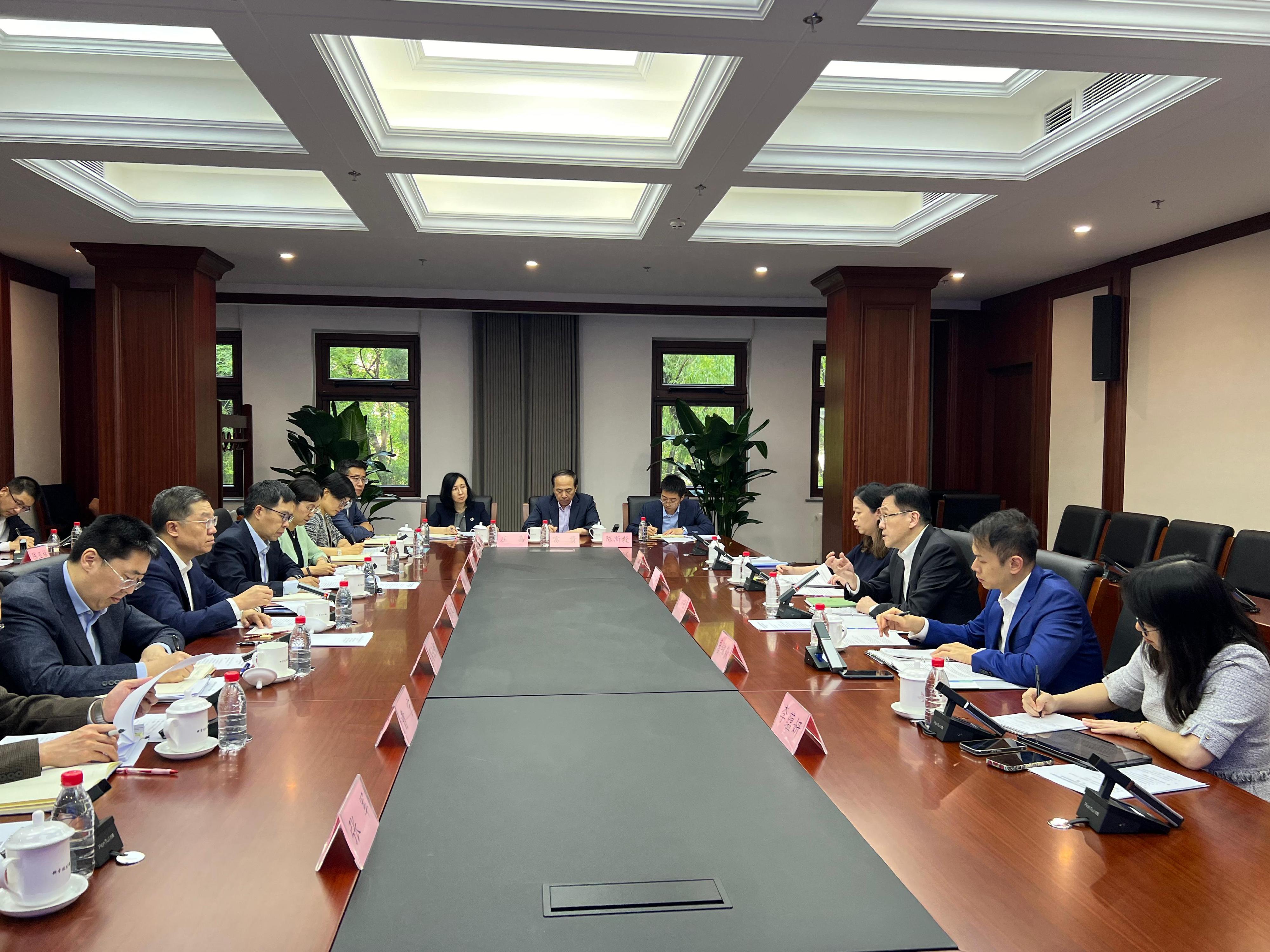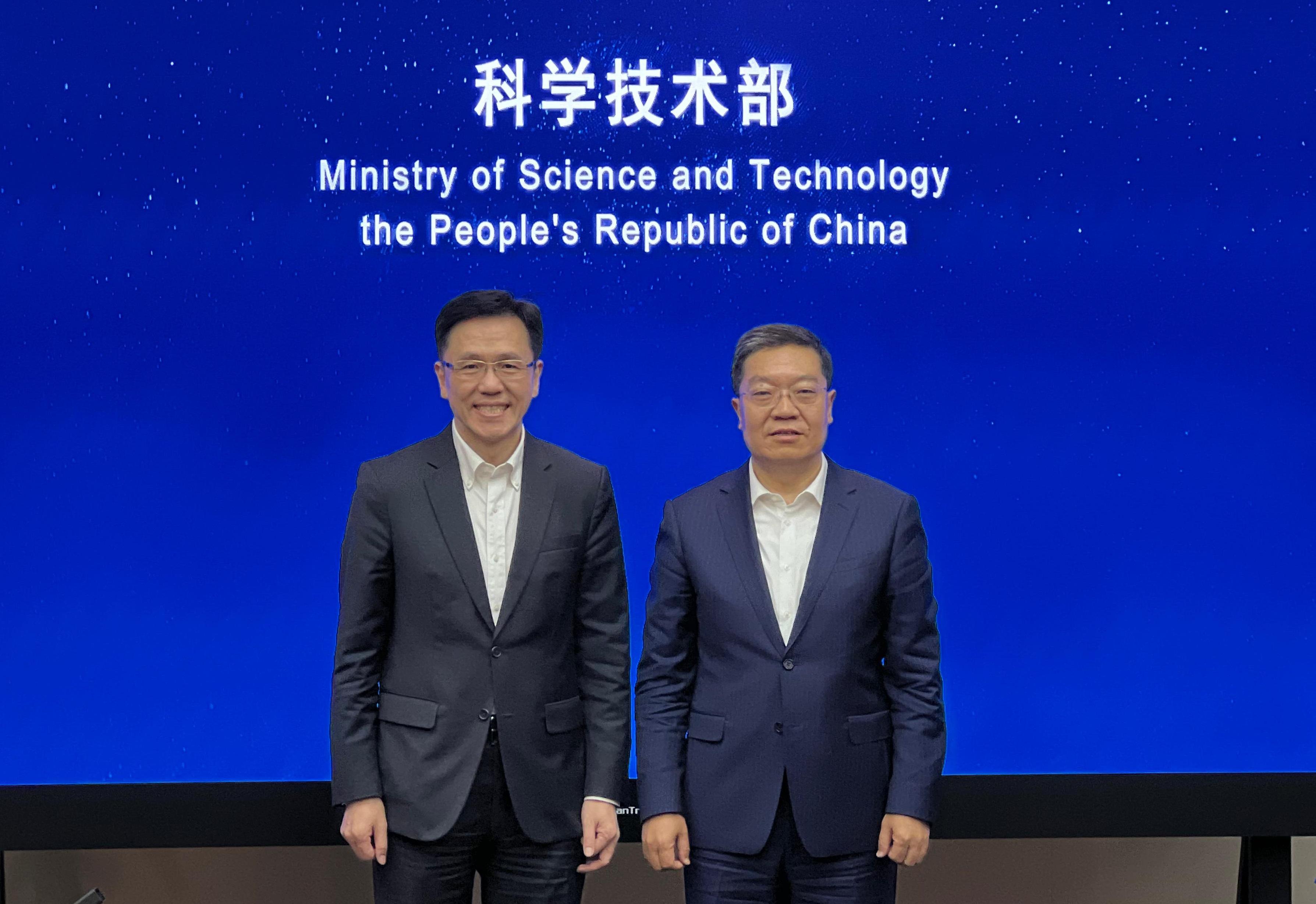SED leads HK higher education institution delegation to begin visit to Beijing (with photos)
The Secretary for Education, Dr Choi Yuk-lin, is leading a delegation of Hong Kong higher education institutions to visit Beijing for two consecutive days (May 8 and 9). They called on the Ministry of Education, and visited Peking University, the Changping Laboratory, the headquarters of the Asian Infrastructure Investment Bank and the Beijing Centre of the University of Hong Kong.
Today (May 9), the delegation called on the Ministry of Education and met the Minister, Mr Huai Jinpeng. Dr Choi expressed sincere gratitude to the Ministry of Education and the Liaison Office of the Central People's Government in the Hong Kong Special Administrative Region for arranging the study tour, providing the leaders of Hong Kong higher education institutions with a comprehensive understanding of the overall development of the country, the strategy of building a leading country in education and the latest advancements in education and technology of the country, facilitating institutions in planning for future developments.
Dr Choi pointed out that the Government of the Hong Kong Special Administrative Region endeavours to develop Hong Kong into an international hub for post-secondary education. The key measures include promoting collaborative development of higher education in Hong Kong and on the Mainland, encouraging post-secondary institutions to strengthen international exchanges and co-operation, supporting local institutions' expansion and quality enhancement for attracting more non-local students to study in Hong Kong, and planning ahead for the future development of higher education to actively complement the national development strategies.
She said that Hong Kong will continue to build on the unique advantages under the "one country, two systems" principle, complement the national strategy of "invigorating the country through science and education", make the most of its role as the gateway and window for international connections, and strive to build the "study in Hong Kong" brand, leveraging Hong Kong's strengths to contribute to the country.
At the meeting, a number of the delegation members shared the advantages of Hong Kong higher education institutions, and their efforts in promoting collaboration with Mainland and international higher education institutions, strengthening values education and developing universities of applied sciences, etc.
Thereafter, the delegation visited Peking University and attended a sharing session by the University's Honorary Dean of the National School of Development, Professor Justin Lin, on his thematic report.
The delegation also met the representatives of Mainland members of the Beijing-Hong Kong Universities Alliance to discuss ways to deepen exchanges and co-operation between the universities of the two places on talent cultivation, student admission and employment, and scientific research. The Beijing-Hong Kong Universities Alliance was jointly established in 2018 by 12 universities of Beijing and eight Hong Kong universities funded by the University Grants Committee (UGC).
Yesterday (May 8), the delegation toured the Changping Laboratory to learn about the latest developments of life sciences in the country, and met its Director and academician of the Chinese Academy of Sciences, Professor Sunney Xie, and his team to explore academic exchanges and scientific research collaborations between Hong Kong and Beijing.
Later, the delegation visited the headquarters of the Asian Infrastructure Investment Bank to learn about the development background of the Bank. They also visited the Beijing Centre of the University of Hong Kong to learn about its efforts in enhancing co-operation and exchanges between Hong Kong and the Mainland in academic research and providing opportunities for practical industry experience.
Dr Choi said that with the support of the country, several Hong Kong higher education institutions have launched joint education programmes in various forms on the Mainland. She encouraged Hong Kong higher education institutions to deepen and broaden co-operation with their Mainland counterparts.
 
Members of the delegation include the Permanent Secretary for Education, Ms Michelle Li; the Chairman of the UGC, Mr Tim Lui; the Chairman of the Research Grants Council, Professor Timothy Tong; the Chairman of the Committee on Self-financing Post-secondary Education, Dr Alex Chan; and presidents or representatives of eight UGC-funded universities, 13 degree-awarding self-financing post-secondary institutions and the Hong Kong Academy for Performing Arts. The delegation will continue their visit to Beijing tomorrow (May 10).
